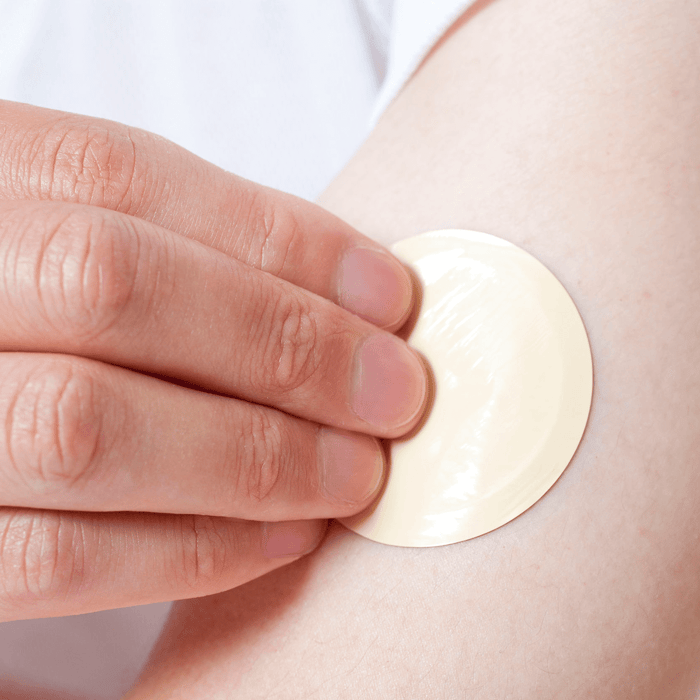
After bariatric surgery, we need vitamins to meet the specific needs of our new GI tracts. This is why it's recommended to take bariatric specific vitamins instead of over-the-counter vitamins. Did you know that not all vitamins are absorbed the same in the body? There are two types of vitamins: water-soluble and fat-soluble. We are going to look specifically at fat-soluble vitamins, why deficiencies occur after bariatric surgery, and what you can do to prevent deficiencies.
What are fat-soluble vitamins? Where are they absorbed?
Fat-soluble vitamins are vitamins A, D, E, and K. These vitamins are absorbed along with dietary fat and are stored in the body's fat tissues, as opposed to water-soluble vitamins that are absorbed in water, any excess is excreted through urine. Fat-soluble vitamins are absorbed in the duodenum - the first part of the small intestine. To note, the duodenum is also the part of the small intestine that is bypassed in the Roux-en-Y Gastric Bypass (RNYGB) and the Biliopancreatic Diversion with Duodenal Switch (BPD/DS).1 We will speak more to this in the next section.
What contributes to fat-soluble vitamin malabsorption after surgery?
There are a couple factors that play into the role of absorption of fat-soluble vitamins after all bariatric surgeries. Patients experience decreased food intake after surgery, there are less gastric juices to aid in absorption, and dietary fat is commonly not well tolerated after surgery.1 Post-surgery diets are typically high-protein, low-sugar and low-fat (not to be confused with no fat). In addition to this, the bypassing of the duodenum (particularly for the RNYGB and BPD/DS) is arguably the most important influence on nutrient malabsorption after bariatric surgery.1 A low-fat intake combined with fat being malabsorbed results in fat soluble vitamins being malabsorbed too.
Which fat-soluble vitamins are at highest risk?
Vitamin D is at the highest risk of deficiency. Up to 90% of patients with obesity present a vitamin D deficiency before bariatric surgery.2 After bariatric surgery, vitamin D deficiency has a prevalence of up to 100% of patients.3 Signs and symptoms of a vitamin D deficiency include low blood calcium levels, muscle spasms, tingling, cramping, and metabolic bone disease.2
Vitamin A deficiencies have been found in 14% of patients with obesity pre-bariatric surgery2 and in up to 70% of patients who have undergone the RNYGB or BPD/DS.3 Signs and symptoms of vitamin A deficiency include night blindness, Bitot’s spots, poor wound healing, and loss of taste. Severe vitamin A deficiency can lead to corneal damage, blindness, and abnormally dry skin.2
Vitamin E and vitamin K deficiencies are less common before and after bariatric surgery. Only 2.2% of patients with obesity present with vitamin E deficiency before surgery. There is currently no data on vitamin K deficiencies before surgery.2 After bariatric surgery, deficiencies of vitamin E and vitamin K are rare.3 Though rare, they do occur. Signs and symptoms of vitamin E deficiencies include hyporeflexia, gait disturbances, neurologic damage, muscle weakness, and hemolytic anemia. Signs and symptoms of vitamin K deficiencies include hemorrhage, bruising, bleeding gums, delayed blood clotting, and nose bleeding.2
What can you do to prevent fat-soluble vitamin deficiencies?
1. Take the recommended amount of fat-soluble vitamins for your surgery daily.
- Be sure to follow the ASMBS Guidelines for fat-soluble vitamins, outlined below, to prevent deficiencies.3
| Surgery | Vitamin A | Vitamin D | Vitamin E | Vitamin K |
| Sleeve Gastrectomy | 5,000-10,000 IU/d | 3,000 IU/d* | 15 mg/d | 90-120 μg/d |
| RNYGB | 5,000-10,000 IU/d | 3,000 IU/d* | 15 mg/d | 90-120 μg/d |
| BPD/DS | 10,000 IU/d | 3,000 IU/d* | 15 mg/d | 300 μg/d |
*Doses are for supplemental Vitamin D3
2. Look for dry, water-miscible fat-soluble vitamins in your bariatric multivitamin, such as Celebrate's Bariatric Multivitamin ADEK capsules or chewable tablets.
- Dry, water-miscible forms of fat-soluble vitamins in your multivitamin will enhance absorption because they do not need to be taken with fat.
3. Get your nutritional lab values checked as recommended.
- The ASMBS Guidelines recommend routine screening for Vitamin D for all surgeries, Vitamin A particularly for RNYGB and BPD/DS, and Vitamin E and Vitamin K for patients who are showing symptoms.3
4. Stay connected with your bariatric team.
- As always, speak with your bariatric team about nutritional supplementation and what is appropriate for you.
Resources:
- Sawaya, Ronald Andari et al. “Vitamin, mineral, and drug absorption following bariatric surgery.” Current drug metabolism vol. 13,9 (2012): 1345-55. doi:10.2174/138920012803341339
- Parrott, Julie, et al. “American Society for Metabolic and Bariatric Surgery Integrated Health Nutritional Guidelines for the Surgical Weight Loss Patient 2016 Update: Micronutrients.” Surgery for Obesity and Related Diseases, vol. 13, no. 5, May 2017, pp. 727–741, 10.1016/j.soard.2016.12.018. Accessed 4 Nov. 2019.
- Mechanick, Jeffrey I., et al. “Clinical Practice Guidelines for the Perioperative Nutrition, Metabolic, and Nonsurgical Support of Patients Undergoing Bariatric Procedures – 2019 Update: Cosponsored by American Association of Clinical Endocrinologists/American College of Endocrinology, The Obesity Society, American Society for Metabolic and Bariatric Surgery, Obesity Medicine Association, and American Society of Anesthesiologists.” Obesity, vol. 28, no. 4, 23 Mar. 2020, 10.1002/oby.22719. Accessed 29 May 2020.
Multi-ADEK Vitamin Capsules, Iron-Free

$24.99
Individuals who undergo duodenal switch surgery require higher levels of fat-soluble vitamin A, vitamin D, vitamin E, and vitamin K for optimal health after weight loss surgery. Multi-ADEK vitamin capsules are specifically designed to address the unique needs of bariatric… read more



